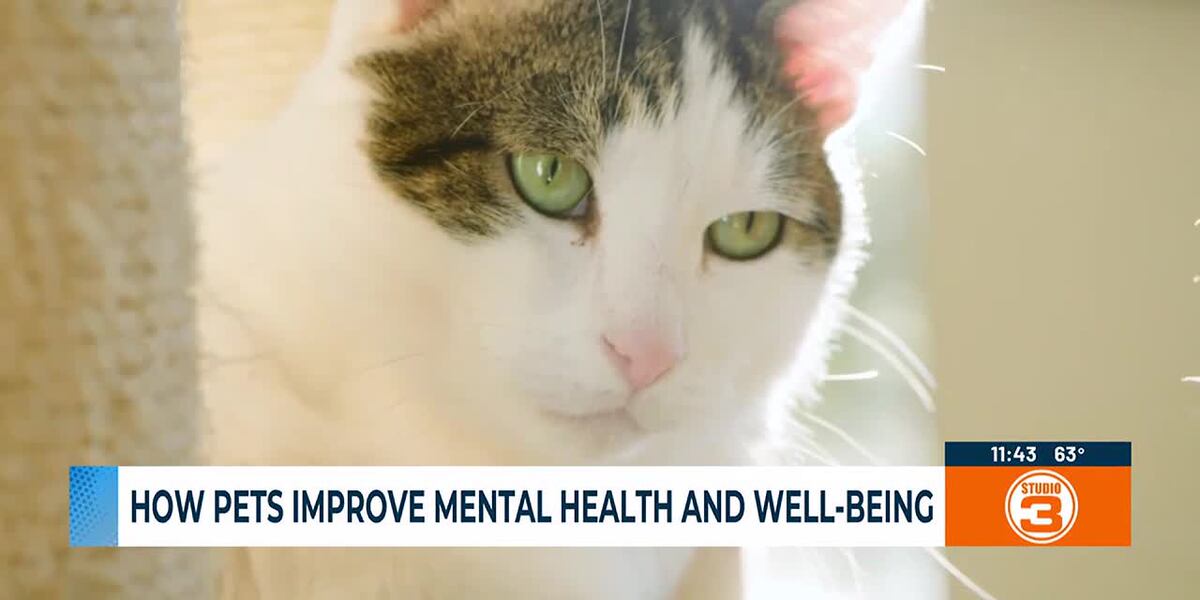Pawsitive Vibes Only: How Your Furry Friend Boosts Your Mental Wellbeing
2025-05-30

WSAZ
Ever feel like your pet understands you better than anyone else? You're not wrong! Leading human-animal interaction expert, Dr. Tammie King, shares invaluable insights into the incredible ways our beloved pets contribute to our mental health and overall wellbeing. From reducing stress to combating loneliness, discover the science-backed benefits of the human-animal bond and how you can harness it for a happier, healthier life.
The Science Behind the Snuggles
The connection between humans and animals is ancient, but the science behind it is relatively new. Research consistently shows that interacting with pets can significantly reduce stress hormones like cortisol and increase levels of oxytocin, the 'love hormone' that promotes feelings of bonding and relaxation. It's not just about feeling good; it’s about tangible physiological changes that benefit your mental health.
Combating Loneliness and Isolation
In today's increasingly disconnected world, loneliness and isolation are growing concerns. Pets offer unconditional love and companionship, filling a void that can be difficult to find elsewhere. They provide a sense of purpose and routine, encouraging owners to be more active and engaged with their surroundings. Whether it's a daily walk with your dog or simply cuddling with your cat on the couch, these interactions create vital social connections, even if they're with a furry friend.
Reducing Anxiety and Depression
Studies have demonstrated that pet ownership can alleviate symptoms of anxiety and depression. The responsibility of caring for a pet can provide structure and motivation, while the simple act of petting an animal has a calming effect. Furthermore, pets can serve as a social lubricant, facilitating interactions with other people and reducing feelings of social anxiety. For individuals struggling with depression, a pet can offer a source of comfort and unconditional support, reminding them that they are loved and needed.
Beyond the Basics: Different Pets, Different Benefits
While dogs and cats are the most common companion animals, the benefits of human-animal interaction extend to a wide range of species. Horses can be incredibly therapeutic for individuals with emotional trauma, while fish tanks can create a calming and meditative environment. Even smaller pets like hamsters and guinea pigs can offer companionship and reduce feelings of loneliness. The key is to choose a pet that aligns with your lifestyle and personality.
Building a Stronger Bond: Tips for Maximizing the Benefits
* Quality Time: Dedicate specific time each day to interact with your pet, whether it's playing, grooming, or simply cuddling.
* Training & Enrichment: Keep your pet mentally stimulated with training exercises and interactive toys.
* Routine & Responsibility: Establishing a consistent routine for feeding, walking, and playtime can provide structure and a sense of purpose.
* Mindful Interaction: Be present and engaged when interacting with your pet. Focus on the moment and appreciate the connection.
The Takeaway
The evidence is clear: pets are more than just companions; they're valuable contributors to our mental wellbeing. By understanding the science behind the human-animal bond and actively nurturing this connection, we can unlock a wealth of benefits for our mental health and live happier, healthier lives. So, give your furry friend an extra hug today – you both deserve it!






